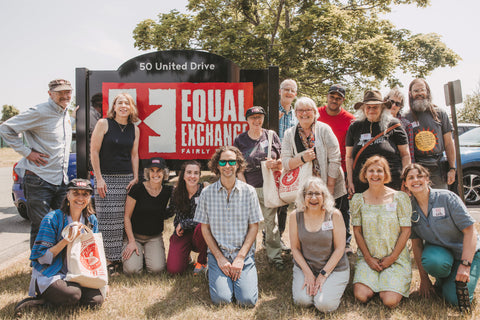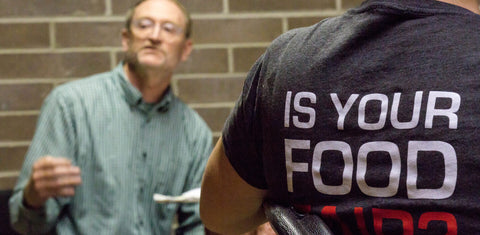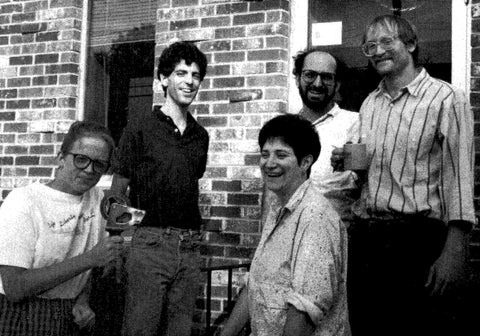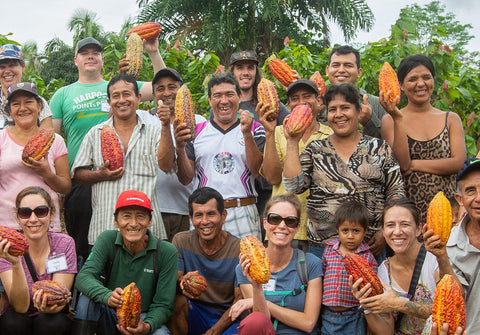Join our Citizen-Consumer Community
Food is a for-profit industry, coming at a cost to farmers, consumers, and the planet. Join us and help build a democratic food system that belongs to the people, not corporations. How can Citizen-Consumers participate in creating a more just system of trade? What can we dream up and leverage collectively? Join us for the opportunity to have your voice and ideas included. We're saving a seat for you.
Things we do together
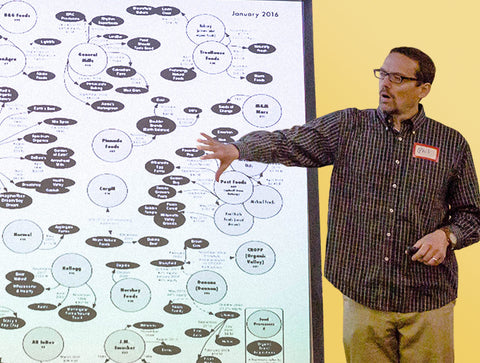
Events and webinars
Dive deeper into topics around alternative trade, our farmer partners, and justice in our food system.
Participate in our democratic model
Citizen-Consumer voices are represented on our board with up to three designated seats.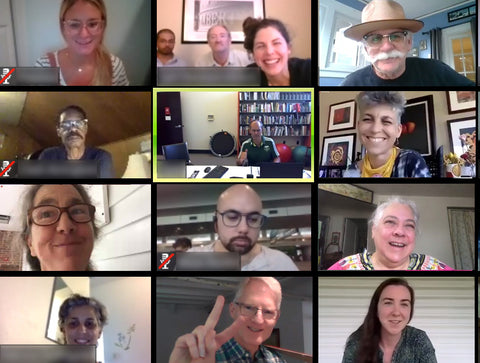
Monthly member meetings
Gather as a community, engage in shared learning, and hear updates from Equal Exchange.Get started
Join our growing community of Equal Exchange citizen-consumers by telling us how you are connected to Equal Exchange, why you support us, and how you would like to participate more in the future. Whether through purchasing at least $100 of our products per year for your household (no need for receipts, just think about your consumption like a daily coffee ritual or routine gift giving), engaging in advocacy and activism for Equal Exchange or in the wider food system, investing in our alternative capital model, or facilitating the distribution of our products in your congregation or community. Share your answers below or email organizing@equalexchange.coop.
Contact us
Please get in touch. We welcome your questions and ideas and look forward to helping you get more involved.
Danielle: (774) 776-7407
Frankie: (508) 427-5225
organizing@equalexchange.coop
A letter from our president and co-founder
Rink Dickinson
In the early years it was very clear that Equal Exchange was radically different and breaking many of the “rules” of the market. During this time fair trade or alternative trade was barely known so by definition, it was different because there were no alternatives.
Today, Equal Exchange is 150 times larger than we were after year three. What we are doing is living our original wild-eyed dreams at a significant national and international scale. And we are every bit as radically different. We break the rules of the market with every purchase we make from our small farmer partners in tea, cocoa, bananas, and coffee.
Our challenge now is to communicate the impact of our alternative model. Today, hundreds of companies use the fair trade name or seal, which may or may not involve a fair trade supply chain. Often the terms “fair trade” or “direct trade” are no more than marketing tools which don’t actually represent an alternative supply chain. Equal Exchange is too often confused in people’s minds with the sea of ethically sourced/fair trade/B Corp products and companies shouting out their commitments in the crowded market environment. But we, and the few alternative traders like us, are fundamentally different.
Supply chains are in vogue due to the pandemic. They can help us understand the real difference in what we actually do and the difference between marketing and real change. All goods that we humans consume come from supply chains; most are conventional and corporate. But if Citizen-Consumers can learn the difference between genuine alternatives and impostors we can communicate it to others which creates a better future for small farmers and artisans, for the planet, and for human rights and democracy.
Learn more about the key problems we need to address, challenge, and solve if we want to create a just food system. Read The Citizen-Consumer Dilemma series >

